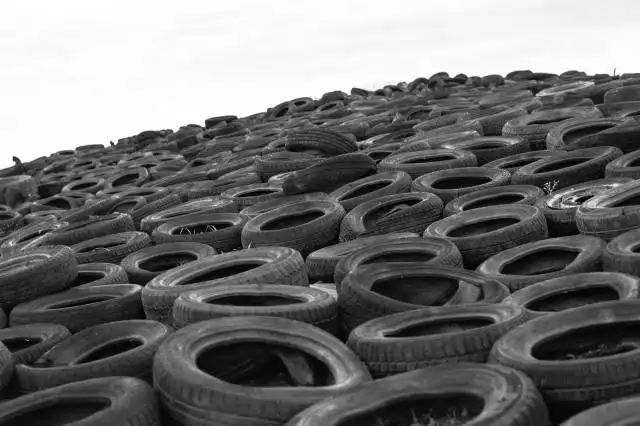Start a Junkyard Business
Hitting the Jackpot in the Junkyard: Venturing into Sustainable Goldmines
| Updated


JUNKYARD BUSINESS
Venturing into a junkyard business is like hitting a gold mine in the world of waste! This fascinating venture is all about collecting, storing, and selling discarded goods, from scrapped car parts to discarded furniture, you name it. And hey, get this, your rubbish venture is a critical player in environmental sustainability by promoting recycling and reducing landfill. So, new entrepreneur, ready to dive into the lucrative heap of potential riches while helping mother Earth?
Jump to Business Plan
RELATED BUSINESS IDEAS
Browse ALL Cars & Transportation Solutions Business Ideas
Discover Your Perfect Domain
Unlock the door to your online success with our hand-picked selection of premium domain names. Whether you're starting a new venture or rebranding an existing one, the right domain can set the tone for your digital presence. Browse through our curated list, each with its unique potential to enhance your brand's visibility and credibility.
JUNKYARD MINI BUSINESS PLAN
This a quick reality check to help you identify the strengths and weaknesses of your business concept before you dive in.
Junkyard Business Idea Analysis
Expected Percent Margin:
- Gross Margin: 70-80%
- Net Profit Margin: 20-30%
Earnings Expectations:
- Daily Earnings: $500 - $1000
- Weekly Earnings: $3,500 - $7,000
- Monthly Earnings: $14,000 - $30,000
- Annual Earnings: $168,000 - $360,000
Actions to Hit Those Numbers:
Inventory (Scrap) Management:
- Initial Investment: $10,000-$25,000 depending on the size and locality of the junkyard.
- Scrap Collection: Regularly collect and buy junk/scrap from multiple sources.
Marketing and Customer Acquisition:
- Local Advertising: Use low-cost advertising methods like flyers, local newspapers, and online classifieds.
- Online Presence: Maintain an up-to-date website and social media platforms with inventory details, operation hours, etc.
Sales:
- Daily Operations: Open 6-7 days per week, as scrapyards see most business during weekdays and Saturday.
- Relationships with Salvage Buyers: Establish relationships with local salvage buyers and offer competitive prices.
Cost Control:
- Rent or Mortgage: Seek a location with low rent/mortgage as space requirements would be substantial.
- Utilities, Equipment Maintenance, and Licensing: These ongoing costs must be forecasted and controlled efficiently.
Business Operations:
- Recycling: Consider partnering with recycling companies for metal scraps.
- Staffing: You would need to employ 2-3 people familiar with automobile parts and metal scrap.
Remember, these are basic projections that could vary significantly based on local junk and metal market prices. It's always a good idea to consult with a business advisor before starting up.
NOT WHAT YOU HAD IN MIND? Here are more ideas



Browse ALL Cars & Transportation Solutions Business Ideas
Grab Your Business Website Name
Before you get caught up in the whirlwind of setting up your business, invest in a domain name. It's a small but significant step that lays the foundation for your brand and makes it easier for customers to find and trust you. Just like you wouldn't build a house without securing the land first, don't build a business without securing your domain name.
"Why? Can't that wait?" Here's why it shouldn't
Step 1: Determine if Starting a Junkyard Business is Right for You
Breakdown of Startup Expenses
Before starting any business, it is important to understand the costs associated with getting the business up and running. When starting a junkyard business, there are a few key expenses to consider. First, you will need to purchase the land and any necessary equipment. This could include a tow truck, a crane, a forklift, and other tools needed to manage the junkyard. You will also need to consider the cost of any permits or licenses that are required to operate a junkyard. Finally, you will need to factor in the cost of advertising and marketing to help build your customer base.
Breakdown of Ongoing Expenses
Once the business is up and running, there are a few ongoing expenses to consider. You will need to pay for insurance to protect your business and employees. You will also need to pay for any necessary repairs or maintenance to the equipment. Additionally, you will need to pay for any necessary supplies such as oil, gas, and cleaning supplies. Finally, you will need to factor in the cost of any taxes or fees associated with running the business.
Examples of Ways to Make Money
There are a few different ways to make money in a junkyard business. The most common way is to purchase scrap metal from individuals and companies and then resell it for a profit. You can also purchase used cars and other vehicles and then sell them for a profit. Additionally, you can offer services such as towing and repair services to customers. Finally, you can offer recycling services to help customers dispose of their scrap metal in an environmentally friendly way.
Step 2: Name the Business
Choosing a name for your junkyard business is an important step in the process. It should be something that reflects the type of business you are running and the services you provide. It should also be easy to remember and be something that stands out from other junkyard businesses. When choosing a name, consider the following tips:
Make sure the name is easy to pronounce and spell. It should be something that customers can easily remember and recognize.
Make sure the name is unique and not already taken by another business. You can do a quick search online to make sure the name is not already in use.
Consider using a play on words or a pun to make the name more memorable.
Consider using a name that reflects the type of services you provide, such as “Junk-A-Lot” or “Junk-N-Stuff”.
Make sure the name is not too long or complicated. Keep it simple and easy to remember.
Consider using a name that reflects the local area or culture, such as “Junk-in-the-Hills” or “Junk-on-the-Beach”.
Make sure the name is not offensive or inappropriate in any way.
Consider using a name that reflects the environmental aspect of the business, such as “Green Junkyard” or “Eco-Junk”.
Make sure the name is easy to search for online. This will help customers find your business more easily.
Consider using a name that reflects the values of the business, such as “Honest Junkyard” or “Fair-Price Junkyard”.
Once you have chosen a name, you will need to register it with the appropriate authorities. This will ensure that no one else can use the same name for their business. You will also need to check with the local zoning board to make sure the name is not in violation of any regulations. Finally, you will need to register the name with the state and federal government to ensure that your business is legally recognized.
Step 3: Obtain Necessary Licenses and Permits
In Step 3 of starting a junkyard business, it is important to research local regulations and obtain the necessary licenses and permits. Depending on the location, there may be a variety of licenses and permits required to operate a junkyard business. It is important to understand the regulations and laws that apply to the business, as well as any local zoning ordinances. It is also important to understand the regulations regarding the storage and disposal of hazardous materials.
Research Local Regulations
Before obtaining any licenses or permits, it is important to research local regulations. This includes researching the local zoning ordinances, as well as any other regulations that may apply to the business. It is also important to research any regulations regarding the storage and disposal of hazardous materials. Additionally, it is important to research any regulations regarding the sale of scrap metal or other materials.
Obtain Necessary Licenses and Permits
Once the local regulations have been researched, it is important to obtain the necessary licenses and permits. This includes any licenses or permits required to operate a junkyard business, as well as any licenses or permits required to store and dispose of hazardous materials. Additionally, it is important to obtain any licenses or permits required to sell scrap metal or other materials. It is also important to obtain any necessary business licenses or permits, such as a business license or a sales tax permit.
Step 4: Secure a Location
Considerations for Location
When choosing a location for a junkyard business, it is important to consider the zoning laws and regulations in the area. It is also important to consider the size of the property, as a junkyard requires a lot of space. Additionally, the location should be easily accessible for customers and suppliers. It is also important to consider the cost of the location, as this will be a major expense for the business.
Leasing or Buying a Property: When it comes to securing a location for a junkyard business, there are two options: leasing or buying a property. Leasing a property is often the more cost-effective option, as it does not require a large upfront investment. However, leasing a property does not provide the same level of security as buying a property. Buying a property will require a large upfront investment, but it will provide the business with long-term security. It is important to consider both options and weigh the pros and cons before making a decision.
Step 5: Purchase Necessary Equipment
List of Necessary Equipment
Starting a junkyard business requires certain equipment to help you sort, store, and sell the items you acquire. Some of the necessary equipment includes a forklift, a tow truck, a baler, a shear, a grapple, and a compactor. A forklift is necessary for lifting and moving heavy items, while a tow truck is necessary for transporting items to and from the junkyard. A baler is used to compress scrap metal and other materials into bales, while a shear is used to cut scrap metal into smaller pieces. A grapple is used to pick up large items, and a compactor is used to compress large items into smaller sizes.
Tips for Purchasing Equipment
When purchasing the necessary equipment for your junkyard business, it is important to do your research and find the best deals. Look for used equipment that is in good condition and can be serviced regularly. You may also want to consider renting equipment if you don’t have the funds to purchase it outright. Additionally, you should consider the cost of maintenance and repairs when making your purchase. Make sure you have a budget in place to cover any unexpected costs. Finally, make sure you have the necessary licenses and permits to operate the equipment in your area.
Step 6: Develop a Business Plan
Outline of Business Plan
Creating a business plan is an important step in starting a junkyard business. The business plan should include an executive summary, a description of the business, a market analysis, an organizational structure, a description of the products and services, a marketing plan, and financial projections. Additionally, the plan should include a breakdown of startup expenses, ongoing expenses, and ways to make money.
Tips for Writing a Business Plan
When writing a business plan for a junkyard business, it is important to be realistic and honest. Include detailed estimates of startup costs, ongoing costs, and potential profits. Research the local market and competition to gain a better understanding of the industry. Additionally, include a timeline for when you plan to achieve certain milestones. Make sure to include a plan for marketing and advertising, as well as a plan for how you will manage the business. Finally, include a section on how you plan to manage the finances of the business.
Step 7: Market the Business
Examples of Marketing Strategies
There are many different ways to market a junkyard business. One of the most effective strategies is to create a website that showcases the services offered and the types of items that can be found at the junkyard. Social media can also be used to reach potential customers. Creating a Facebook page, Twitter account, and Instagram profile can help to spread the word about the business. Additionally, advertising in local newspapers, radio, and television can be beneficial. Finally, word-of-mouth marketing is a great way to get the business started.
Tips for Effective Marketing
When marketing a junkyard business, it is important to focus on the benefits that the business offers. This can include competitive pricing, convenience, and customer service. Additionally, it is important to create an eye-catching logo and slogan that will help to draw in customers. It is also important to create a budget and stick to it. Finally, it is important to track the results of the marketing efforts to see what works and what doesn’t. This will help to ensure that the marketing efforts are effective and that the business is reaching its target audience.
Step 8: Hire Employees
Considerations for Hiring Employees
When starting a junkyard business, it is important to consider the type of employees you need to hire. Depending on the size of the business, you may need to hire full-time or part-time employees. It is also important to consider the skills and experience you need in order to run the business. You may need to hire people with experience in the automotive industry, or you may need to hire people with experience in customer service. Additionally, you should consider the cost of hiring employees, including wages, benefits, and taxes.
Tips for Hiring Employees
When hiring employees for a junkyard business, it is important to create a job description that outlines the duties and responsibilities of the position. This will help you find the right candidate for the job. Additionally, it is important to conduct background checks and verify references to ensure that the candidate is qualified for the position. You should also create an employee handbook that outlines the company policies and procedures. Finally, it is important to provide training and development opportunities to ensure that your employees are well-equipped to handle the tasks associated with the job.
Step 9: Monitor the Business
Examples of Ways to Monitor the Business
One of the most important aspects of running a successful junkyard business is monitoring it regularly. This includes tracking customer feedback, keeping up with inventory, and monitoring the financials. Additionally, it is important to stay on top of industry trends and changes in the marketplace. This will help you stay competitive and make sure you are offering the best services and products to your customers.
Tips for Monitoring the Business
First, it is important to set up systems to track customer feedback. This can be done through surveys, reviews, and other methods. Additionally, it is important to keep up with inventory levels and make sure you have enough of the items customers need. Finally, it is important to stay on top of the financials of the business. This includes tracking sales, expenses, and profits. Additionally, it is important to review the financials regularly to ensure the business is staying on track.
EXPLORE MORE CATEGORIES
Browse ALL Business Idea Categories
TAKE THE NEXT STEPS










